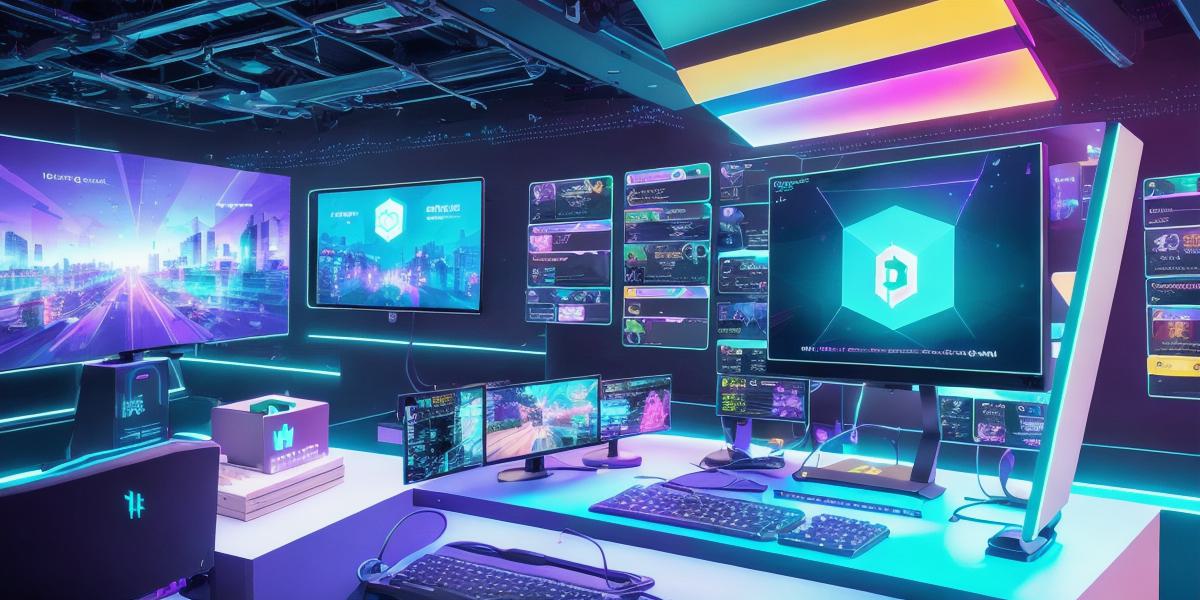As technology continues to advance, game development is becoming increasingly complex. With the rise of blockchain technology, there are new opportunities for developers to create games that are secure, transparent, and decentralized. In this article, we will explore how Unity and blockchain technology can revolutionize game development.

Unity is a popular game engine that allows developers to create games for a variety of platforms, including mobile, web, and consoles. It has a large community of developers who contribute to its growth and development. With the integration of blockchain technology into Unity, developers can take their games to the next level.
One example of how blockchain technology can be used in game development is through the use of non-fungible tokens (NFTs). NFTs are unique digital assets that can represent anything from art to collectibles. They are stored on a blockchain, which ensures their authenticity and security. In games, NFTs can be used to represent characters, items, or other in-game assets. This allows players to own and trade these assets, creating new revenue streams for developers.
Another way that blockchain technology can be used in game development is through the use of smart contracts. Smart contracts are self-executing contracts with the terms of the agreement between buyer and seller being directly written into lines of code. They can be used to automate transactions, such as the sale of in-game assets or the distribution of rewards. This eliminates the need for intermediaries, making transactions faster and more secure.
In addition to NFTs and smart contracts, blockchain technology can also be used to create decentralized games. Decentralized games are games that run on a blockchain, rather than on a central server. This means that they are not controlled by a single entity, making them more resistant to censorship and manipulation. Decentralized games can also provide players with greater control over their in-game assets, as they can be stored on the blockchain and traded freely.
There are already several examples of games that have successfully integrated blockchain technology. One such example is Cryptokitties, a game that allows players to breed and collect unique cats that are stored on the Ethereum blockchain. Another example is Decentraland, a virtual reality game that runs on the Ethereum blockchain and allows players to own and trade virtual real estate.
In conclusion, the integration of blockchain technology into game development has the potential to revolutionize the industry. Unity is well-positioned to take advantage of this trend, as it is a popular and powerful game engine that can be easily integrated with blockchain technology. By using NFTs, smart contracts, and decentralized systems, developers can create games that are more secure, transparent, and engaging for players. As the technology continues to evolve, we can expect to see even more innovative uses of blockchain in game development.
